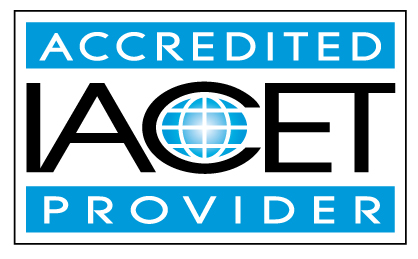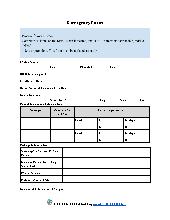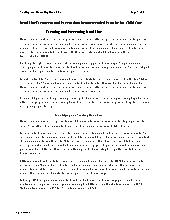Texas Director Credential - $250
Level
This course prepares early childhood professionals for a career in child care administration. Learn the skills to be an effective administrator in the child care setting with this online Texas Director Credential course. This course meets the education requirements to become a Director of a licensed child care center or a Primary Caregiver of a licensed child care home.
ChildCareEd is a Child Day Care Director Credentialing Organization Recognized by Child Care Regulation.
Prerequisites for this course include the completion of an application and submission of required documentation.
How do I receive my certificate of completion?
- Complete the 32-hour Texas Director Credential Training.
- Upload the following as PDF documents:
- Completed Texas Director Credential Application (Must include pages 1,2, and 5)
- Proof of High School diploma/GED
- Current CPR/First Aid certification
- Copy of Drivers License or ID
- Copy of clear criminal background check
The Texas Directors Credential with ChildCareEd is an approved day-care administrators credential issued by a professional organization and approved by Licensing. Once completed, you will receive a certificate as proof you have completed the training program which is valid for two years. The Texas Health and Human Services requires that once you have completed the training:
You will need to be designated as the director or primary caregiver at an operation and complete the following forms (available at https://www.hhs.texas.gov/regulations/forms) and submit them to your licensing representative along with supporting documentation:
- Form 2911 Governing Body Designation
- Form 2760 Controlling person, and
- Form 2982 Personal History Statement
IF YOU DO NOT have any piece of the above required documentation you may still attend our course but, the state will have to give you a waiver for the parts you are missing to be a licensed director. Please submit your waiver in place of any missing documentation.
Topic areas covered in this training include:
- Child Growth and Development 3 hours
- Health, Safety, and Nutrition 5 hours
- Learning Environments, Planning Framework, Curriculum, and Standards 5 hours
- Responsive Interactions and Guidance 2 hours
- Family and Community Relationships 4 hours
Observation and Assessment 2 hours - Business and Operations Management 3 hours
- Human Resource Leadership and Development 4 hours
- Establishing and Maintaining an Effective Organization 2 hours
By the end of this training, the learner will be able to:
- Explain the importance of using contracts and employee training & screening procedures.
- Identify resources addressing health, safety and nutrition topics (CPR, 911, CDC, WIC, Poison Control)
- Identify recommended medical and immunization schedules for children birth through age three
- Demonstrate knowledge of appropriate child abuse reporting process
- Identify strategies for effective communication with families.
- Identify and contemplate bias and explore anti-bias approaches that support working with children and families.
- Identify staff evaluation tools and evaluation timelines that will assist with staff supervision and monitoring performance
- Demonstrate an understanding of development in children 3-5 years of age and their learning styles.
- Describe developmental domains
- Identify community organizations that have training programs available that focus on child abuse.
- Demonstrate understanding of the components of an emergency preparedness plan.
- Demonstrates understanding of the importance of room arrangement/environment.
- Identify and demonstrate an understanding of the content requirements for staff orientation.
- Demonstrate an understanding of how to conduct objective and accurate observations.
- Demonstrate understanding of the roles and responsibilities of an administrator in a child care program.
- Explain the value of self-evaluation and reflection.
- Demonstrate understanding of the elements of schedule planning.
- Demonstrate understanding of how to write effect SMART Goals.
- Demonstrate an understanding of approaching parents as equal partners in learning.
- Demonstrate an understanding of using community resources for referrals.
- Demonstrate how to develop policies and procedures that promote good hygiene
- Demonstrate an understanding of content areas and how they are related to child development.
- Demonstrate an understanding of child care policies, licensing regulations, and legal and advocacy issues.
- Identify resources that will assist with record keeping.
- Give examples of time management strategies administrators can use to balance record keeping and supervising.
- Demonstrate an understanding of how to create a natural outdoor classroom that supports child development in all areas.
- Describe a classroom management plan that promotes positive reinforcement, clear expectations, and consistent implementation.
- Identify ways to interact respectfully and appropriately in a variety of cultural contexts
- Identify the components of a lesson plan for all abilities.
- Identify the stages and milestones of development from birth to age 2.
- Demonstrate understanding of the components of a curriculum.
- Demonstrate an understanding of how positive guidance promotes sound social and emotional development.
- Identify appropriate practice for the identification, prevention, and treatment of communicable diseases in childcare.
- Describe the proper procedures of medication administration including: authorizations forms, documentation, storage, training, emergent issues, and resources.
- Define the meaning of professionalism in child care.
- Identify strategies to make connections and interact substantively with those who are different from oneself
- Identify effective strategies for interviewing potential new staff.
- Identify the signs of child abuse and neglect.
- Identify strategies in promoting sound health and safety principles for in child care.
- Identify stages and milestones of physical and cognitive development ages 6-13.
- Demonstrate understanding of the dynamics and the importance of a relationship between a parent and professional (.5 hr).
- Identify positive leadership techniques.
- Identify adaptations to materials and equipment for children with diagnosed special needs or delay
- Identify types of supervision.
- Describe ways child care professionals can display leadership with families and the community.
- List strategies to implement SMART goals.
- Identify necessary information and format for a business plan
- Identify the importance of child nutrition and nutrition training for staff in childcare.
- Define the term multiculturalism and how it relates to the child's environment.
- Demonstrate an understanding of the necessary content of employee and parent contracts
- Describe how materials, equipment, environment, and staff meet the individual needs for children
- Distinguish appropriate indoor safety concerns
- Distinguish appropriate outdoor safety concerns
- Describe the importance of responding sensitively to differences in individual communication styles.
- Identify the importance of professional development for child care professionals and strategies to make meaningful choices.
- Describe the meaning of positive discipline in the classroom.
- Demonstrate an understanding of the benefits of individualized learning
- Demonstrate an understanding of the importance and components of a mission statement.
- Identify strategies to assist children with food allergies/feeding concerns.
- Recognize the importance of problem solving and conflict resolution strategies with community members and families
- Demonstrate an understanding of observational techniques that result in accurate and objective observation
- Identify budget line items and basic budget development strategies
- Demonstrate an understanding of the information that should be communicated regularly with staff, parents, and the community
- Criteria to earn CEUs:
- Certificates are awarded when the following criteria have been met by the learner:
- Class has been paid in full
- All material has been reviewed
- All review questions and final test have been completed with a passing score of 80% or higher.
- Learning Assessment Method:
- Learners will be assessed through questions after every section is completed. Learners will not be
allowed to proceed to the next section of the training until all questions have been answered correctly.
Learners will be presented with a final test composed of true/false and multiple choice questions.
Upon successful completion of the training, learners will receive their certificate by email.
- Learning Methodology:
- Online material will be presented in the form of slides,
accompanied with speech. Videos will be used to demonstrate ideas and concepts. Charts and tables
will be used for illustration.
- Logistics/Required Technology:
- A stable internet connection is required for the completion of this course. Users are highly encouraged to take their online course on Google Chrome on either a laptop or desktop computer. Speakers and/or headphones are also required to hear speech.
- Payment Policy:
- Payments need to be made in full. No refunds will be issued after starting the class.
- Proprietary or conflict of interest disclosure:
- Unless otherwise stated in the course description none of H & H subject matter experts and editor has any conflict or proprietary interests related to the material they prepared in this course.
- Support Services:
- Please visit our contact us page
You are purchasing a session of an online training that includes online assessments. Your certificate will be emailed to you once you pass the final exam with a passing grade of 80%.
Your certificate will bear the name you provided to us when you signed up. For support and questions regarding the material presented in this class please contact us at [email protected]. Please consult our frequently asked questions page for other questions or feel free to contact us.
How do I apply to the program and earn my Director Credential?
Please upload the following documents as PDF files:
- Completed Texas Director Credential Application (Must include pages 1,2, and 5)
- Proof of High School diploma/GED
- Current CPR/First Aid certification
- Copy of Drivers License or ID
- Copy of clear criminal background check
(IF YOU DO NOT have any piece of the above required documentation you may still attend our course but, the state will have to give you a waiver for the parts you are missing to be a licensed director. Please submit your waiver in place of any missing documentation.)
Hours breakdown
5 CD/ 2 SN/ 8 PRO/ 5 CUR/ 4 HSN/ 8 COMTopics / Categories
AdminBasic
Program Operation
Families
Social/Emotional
Content Areas
Health and Safety
Child Development
Observation
Professionalism
Latest Jobs
- Texas Director Credential Application
- Achieve Your Career Goals with the Texas Director Credential Course
- Navigating the Renewal Process for Texas Director Credential with ChildCareEd
- Texas Director Credential
- Texas Child Care Director Certification Online: Your Complete Guide to Becoming a Leader
- Texas and the CDA Credential
- The CDA Credential and Texas Rising Star Certification
- Elevate Your Career: From CDA Credential to Child Care Center Director in North Dakota with ChildCareEd
- Launching Your Leadership Journey: Child Care Director in Texas
- The Advantages of Attaining a CDA Credential in Texas Child Care
- Child Day Care Director Credentialing Organization
- Education and Training Requirements for Child Care Directors in Texas
- Why I decided to earn my CDA Credential with ChildCareEd.
- Why the CDA Credential is Essential for South Carolina Child Care Leaders and How ChildCareEd Makes Getting There Easier
- Texas annual training
- FREE 24 Hour Texas Pre-Service Training Giveaway
- The Benefits of a CDA Credential for Kentucky Childcare Providers
- Nurturing Tiny Minds: The Path to a CDA Infant/Toddler Credential
- Your Path to Becoming a Childcare Director in Georgia
- Maryland Child Care Credential Program: What is a PAU?









